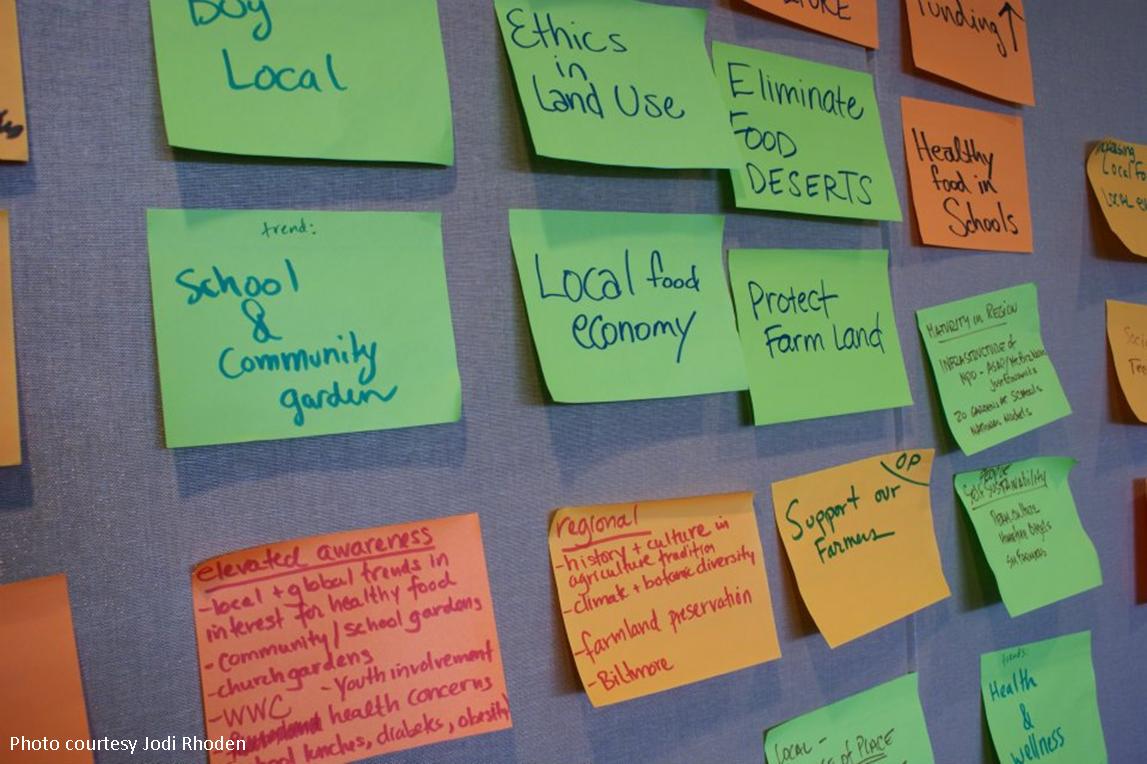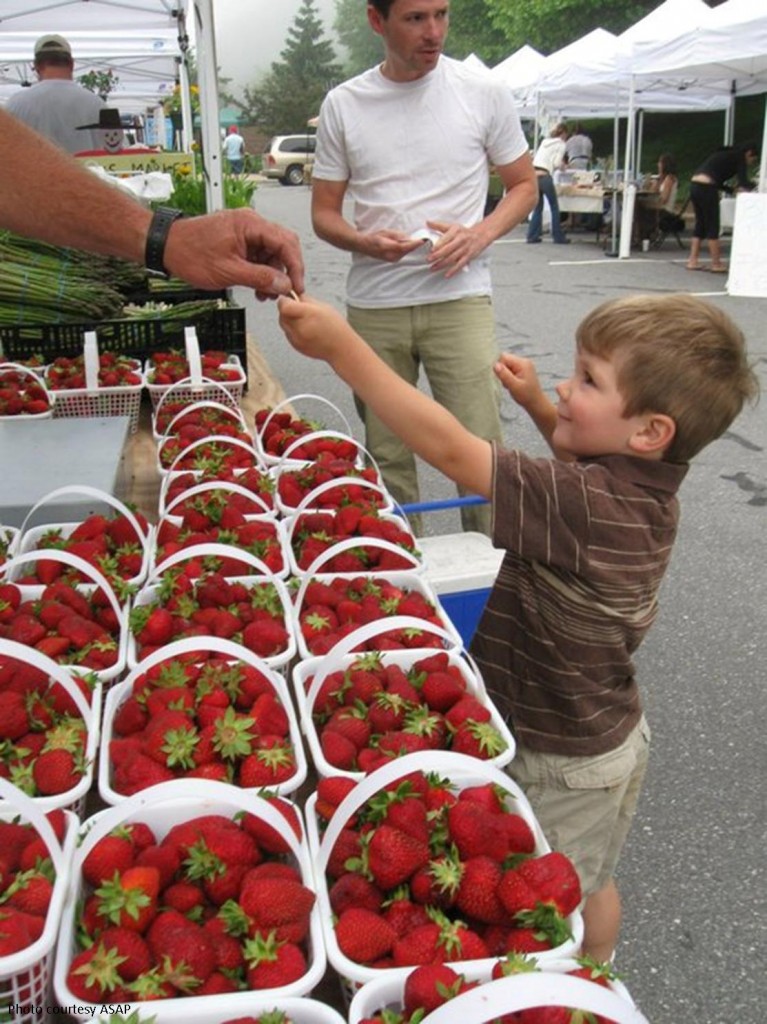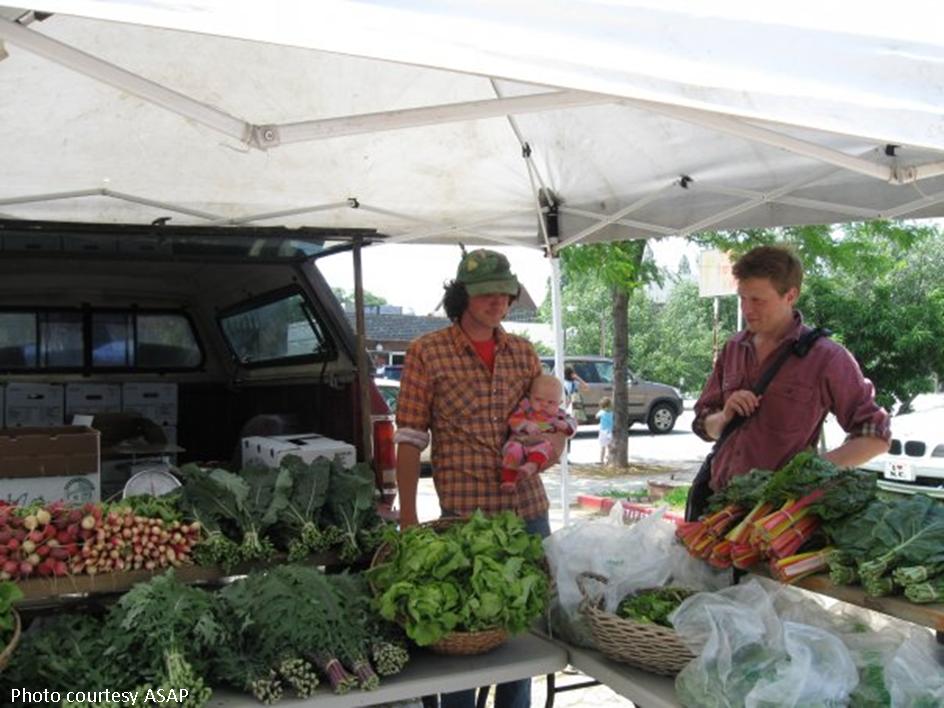In the Asheville area, we are blessed with 12 farmers markets that sell fresh, seasonal produce and over 250 independent restaurants that serve unique, delicious fare. Yet within this “Foodtopia” coexists food insecurity, or the inability of some area residents to access enough healthy, affordable food. A 2011 study conducted by the Food Research and Action Center ranked the Asheville Metropolitan Statistical Area (including Buncombe, Madison, Haywood, and Henderson Counties) as 3rd in the nation for food insecurity.
The Asheville-Buncombe Food Policy Council is a group of individuals, organizations, and government agencies who have come together to address food insecurity and “identify and propose innovative solutions to improve local food systems that spur local economic development and make food systems environmentally sustainable and socially just.” Participants include, but are in no way limited to, farmers, restaurateurs, grocers, consumers, health care providers, legislators, planners, food banks, educators, and anyone who is involved with food in anyway. The Food Policy Council provides a venue for diverse stakeholders to communicate about issues and collaborate to develop mutually beneficial solutions.
And with little more than 6 months under their belt, the Asheville-Buncombe Food Policy Council has celebrated several successes. One success comes with the City of Asheville amendment of an ordinance allowing fresh food markets in residential neighborhoods at churches, schools, and community centers. These types of neighborhood produce stands increase access to fresh produce, especially in food deserts where grocery stores are sparse and the closest source of food is a gas station or convenience store. Another success comes with City Council unanimously supporting the Center for Environmental Farm System’s 10% Campaign, which challenges governments, institutions, and individuals to spend 10% of their food budget on locally produced foods. The City’s support of this campaign economically supports our local farmers and keeps our food dollars within our region.
Over the coming months, the Asheville-Buncombe Food Policy Council will be working to increase access to affordable food by evaluating existing land use policies, identifying opportunities for economic development, developing an education campaign, and communicating progress through a variety of media outlets. If you are interested in participating in the future of food security within our Foodtopia, visit abfoodpolicy.com and get involved.
As we strive to live sustainably and work towards lessening our impact on the Earth, it’s important to consider our food systems. Where does it come from? Who does it support? Does everyone have access to it? Next time you’re enjoying some of Asheville’s finest, consider this food for thought.

-Lindsay Majer, Environmental Planner, food consumer, and Board Chair of Bountiful Cities



